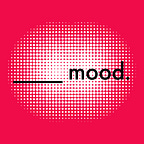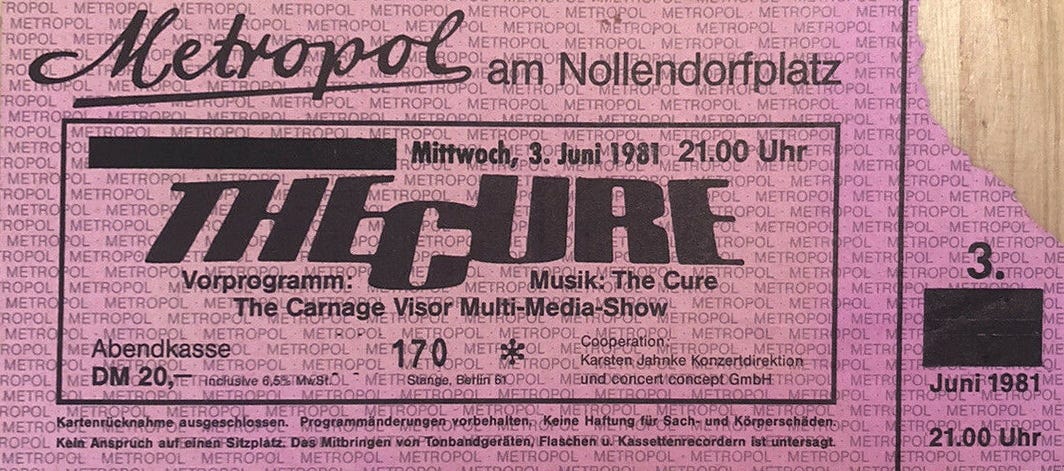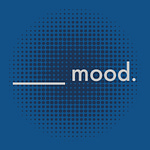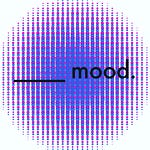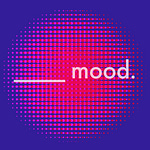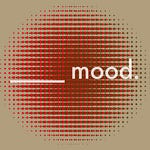‘A bit dark and endless’ is a podcast documenting fan memories of The Cure and West Berlin in the early 1980s. The story comes from a fan named Friederike “Freddy” and is centered around The Cure's June 1981 appearance at Metropol (Nollendorfplatz) in West Berlin, a show on the band’s The Picture Tour.
An edited transcript of the audio follows.
Towards the end of 2021 The Cure announced the “Shows of a Lost World Tour’. The ‘Lost World Tour’ of 2022 would include more than 40 shows across Europe, starting in Latvia and ending in London before the end of the year. Shows of a Lost World would then continue through 2023 in North and South America.
Thinking this could be one of the last tours that The Cure might do, I bought tickets for several shows beyond my homebase of Amsterdam, including Helsinki and London. The Helsinki show was at an ice hockey arena with a capacity of just 8,000 people. The show at Amsterdam’s Ziggo Dome was much larger and sounded great. Unfortunately, I never made it to London because I caught COVID at the Amsterdam show!
But in the months before all this I had discovered Cure fans among colleagues - both women who were about ten years older than me and who had seen The Cure play in European cities in the early 80s. I thought it would be fun to document their stories, so I asked them if they’d be willing to talk about these shows and the music of their youth for a podcast. And so, here we are… heading back to June 3rd of 1981 when The Cure played at a theatre called ‘Metropol’ in West Berlin.
My name is Friederike, named Freddy, and I'm from Berlin in Germany. Um, I first saw the The Cure play in Berlin. I don't remember if it was ‘81 or ‘82, but I think I was 16 years old, so it was ‘81.
I discovered The Cure, I think in the discotheque. We said ‘discotheque’ at this time, not clubs. I was often in a discotheque, a bit punky. The name of the discotheque was Bowie. I was allowed to go at 16 and I think I discovered The Cure there. I asked the DJ or so.
I was not a punk, but I was not a ‘shicky micky’ at all. I went to secondhand shops to buy my stuff, so I was not, punk, not really punk.
I was in school and at this time, I was 16. I was often in a cafe with friends and you know, sport was less important at this time. Boys were more important.
Freddy is someone I know through my work. We are not direct colleagues, but I see her at least once a year at a very large international conference that her company organises in Berlin. Freddy is friendly and has an open and upbeat spirit. She’s also a Berliner which comes through in her no-nonsense attitude. How she manages to be both friendly and no nonsense is something that impresses me about her and I chalk it up to her life-long experiences travelling internationally. When I first met Freddy, she would have been one of the last people I’d have guessed to be a Cure fan, but I ended up discovering that she is by way of her love for Depeche Mode. I wondered what she liked most about The Cure back upon discovering them in the early 80s. With several decades of hindsight, she believes The Cure has an enduring, eternal appeal, while also reflecting its own moment in time.
We had still The Wall and in West Berlin some areas where we had a lot of, um, how can I say it in English? Groups. We had punks, we had tats, we had poppers, we had mods. We had a lot of uh, I dunno, demonstrations or people crowded in the streets. It was a bit, uh, it was fun because people… it's not like today, everybody was different and wanted to be different.
I ask Freddy about growing up in West Berlin at the time.
For me it was, I was growing up in a very green, rich area somehow, but which was not far from the city. My strongest impression was a time when I went out for the first time alone, you know, with friends. We had one friend, he was 18 and he had a Beetle, so we were cruising around and yeah, that was the first time that we discovered the nightlife, a bit, not so long, not the whole night. It was not allowed by my parents, but we had this discotheque, Bowie. It was open at 5:00 PM in the afternoon and we could stay until 10. And this discotheque sometimes police were coming and controlling and we were hiding in the toilet room. Berlin in The Wall time was very different than now, much smaller, much closer. Many people were coming here because, Berlin. Even now, if I say I come from Berlin, people say, “Oh, Berlin,” you know, and this was the feeling much more in these times than now.
The colour green is not one I connect with Berlin, but the city’s nightlife is surely something most people associate with Berlin. When I ask about other words that would describe Berlin in the early 80s, some of the dark, edgy grit comes out.
A bit dark, a bit dirty. No glamor like today. International, closed a bit. Closed shop. Closed because we had The Wall around and we felt like the real Berliners, you know? And we said to the people coming for the weekend, tourists or even young people, uh, For example, some young people, they didn’t want to make military service in West (Germany), in Munich, so they moved to Berlin because in Berlin there was not a duty to go to the military service. Yeah. And um, nice green. Also a lot of green areas. A lot of interesting people. Art and museums, which were always very important. Often we were the first place where they started an art action, you know.
I ask Freddy if she has a sense of what it was like for bands from abroad to come to Berlin in the early 80s.
I think that what they say on stage sometimes that Berlin is special, but perhaps they say the same thing in Amsterdam. . .
They do
But Berlin was with this situation, with The Wall. You know Barclay James Harvest, they did a concert with Pink Floyd next to The Wall. They wanted that the Eastern part could hear them. That was also great. I saw them. It was a bit, uh, freaky, this concert from Barclay James Harvest was so full, full, full. I remember that I was a bit scared of the mass of people, but there was enough space, but it was next to The Wall. And the police in Eastern Berlin, they tried to, not to shoot, but to chase the people, which were coming narrow to /the Wall to hear. I think for many bands it was the music scene. I was not involved, you know, I cannot say, but I think the music scene was a bit special for them. And, you know, David Bowie lived in Berlin and there were good, um, shops for music, you know, uh, disks…what do you say in English?
LPs?
LPs, yeah, it's the same in German! LP shops, and it was very, very freaky little shops in Kreuzberg. That does not exist anymore. There are still some because this is still a bit fashionable now to have back LPs, but at this time it was, um, very money, you know? 15 euro for an LP. That was another experience than today. Everything is online. Everything is in the ear. And you had these LPs and you were fighting with your brother if he touched it. And if there were some noises on the LP, you said to your brother, “okay. It was you!”
Did you discover music from, um, older brothers or sisters of your own or your friends?
No, my brother, nothing. He was very special. He is still very special and he loves classical and stuff. We were not so, um, when we were young, we were more fighting than discussing music. I did not have a lot of older friends; they were all my age and I think one friend, this one with the Beetle, he made us tapes because he had all the music and sometimes I was flirting with DJs in the clubs, in the discotheques that they register for me a tape from the evening. Okay, I did that often in France. I was living in France after the end of the eighties and I knew a lot of DJs and they gave me tapes. That was great.
Do you still have any of them?
Ah, The tapes. Yes, I have them all!
Oh, okay. Wow.
I have one box with all my tapes. Sometimes I heard it when I found back my little tape deck and the quality suffered a bit.
Freddy shared her memories of The Cure’s June 1981 concert at Metropol in West Berlin, including the price of the ticket, who she went with and what the fashion of the moment was. She recalls with practical detail and a sense of humour what Robert’s hair looked like and the method he used to maintain his look while sweating on stage.
The price of the ticket was. I can't remember. I think it was around 15 and 20 marks. I go with, uh, my best friends, two best friends, two girls. They loved The Cure too. And uh, yeah, we were allowed, uh, to go we're 16. Mm-hmm. and yeah. And it was very, um, we were very excited.
Did you dress up a certain way?
No, not at all. Perhaps at this time, I don't remember, but I had some trousers, army trousers, you know, these. And they were full of written stuff with a big black, pen. And I had, perhaps that was a bit our style, a shirt from my grandfather, a big long shirt. And then, I don't know the English word for it - bloes?
Blouse
Blouse. Also from my grandfather, not for my grandfather, but in the secondhand shop you bought them. There was a lot of choice of grandfather blouse and they were long, you know. And I had the hair long. Not a lot of makeup. I think a bit perhaps black lips, but I'm not sure, it was not a big theme to be very dressed up.
How would you describe the audience at the show?
Same as we were, our age because we are all the baby boomers, ‘64, ‘65, ‘66. That was my impression, most of them were young.
Do you remember what the band looked like on stage?
Uh, they looked like today a bit. Yeah. Robert Smith, but they were, he was so good looking Robert Smith at this time, and he had this hair in the air. He was sweating a lot and he was also a bit moving. What he didn’t do later, but he moved a lot and he was sweating a lot, and then the hair fell down and then he took a towel. He took a towel to wrap. After all three, four songs, he took a towel to rub the hair so that the hair is back in the air. I think that he didn't use any products to stabilize his look. He had something on the lips, but he was really good looking at this time when I compare with now. Yeah. and he was very, open, good mood and very motivated.
Many years later Freddy still loves Robert Smith and the music of her youth, but admits to having many other loves too. When I asked if there was anything she did not like about the band, she is quick, firm and practical about it.
No. Sometimes perhaps one or two songs from the newer ones, which was normal, you know? But, I confess, I'm really the biggest fan of all the old songs. Yeah. And I don't know the last albums, there many albums I don't know, but the old ones are still in the heart. I was not an ultra fan that I followed up every info message and news from The Cure. I loved them when I was young, it is my youth, together with many others, but The Cure was always special. You know, the first love, the first visit in the club, it was always with The Cure somehow.
And do you have a favorite song or album from that time period?
I think my favorite is the most popular 17 Seconds.
I was living and studying in France for three years and France is also big, big. I was, also in a Cure concert in Bordeaux, a very big concert and very, um, I felt more far away from the band because it was so big. I was in the highest ranked balcony and it was not good, but the music was good. The French - French people love The Cure. Still, the friends I have my age, they still love The Cure.
What do you think makes the band so popular in so many places in the world?
It fit in the years, this music. Also politically England, London, was very… it begins to be very interesting for the young people to go and the British music, you know, the music coming from Britain was more and more important for certain groups of people. It was the guitar sound that was very popularized at this time and I think the songs are much more guitar sounding.
Did you want to go to Britain at the time?
I went with my parents when I was 10 and then later, no, I was completely flashed by France. I was always in Paris and Bordeaux and I wanted to speak French, not English. And, I was very, France.
To start wrapping up our conversation, I ask Freddy what kind of message she would give Robert Smith today if she had the chance.
Keep alive as long as you can and come again for concerts and enjoy the people still.
I think he's, he's such a cool guy somehow. He never wanted children, for example, and he has his wife, his first love. This is, in this branch, this is something! I think he's somehow someone very stable. I never saw something about scandalous behaviors from him. That's good.
Her answer comes back to that timeless quality that she identified earlier, but also the unique persona that Robert Smith is and how he does things. I also asked if she thought Robert Smith had a political reputation at all.
I have no idea. I have no idea. But the politicians, which are working now, which are my generation, they love The Cure too, I'm sure some of them.
Is that good or bad?
I don't know, but he was never a... Cure, perhaps Boys Don't Cry or so was mainstream. These songs, a bit, since a while, but. If you go to a concert here, I have one friend, he was at the concert now, I told you, here in Berlin some weeks ago and he said it's still The Cure. And it seems that he was so great on stage. He was in a good mood. Sometimes he's a bit not in a good mood and a bit, uh, seems frustrated somehow, but he was so smiley and he was playing. That was very impressive for me to hear that he was playing three hours. Which star is doing this still? Sometimes you go to a concert, you stand in a line for two hours and then you have one hour concert. This is old school perhaps to play three hours. That shows that he likes what he does and he was in a good mood. This was an add-on perhaps for the Berliner public. And, yeah, I would wish that he plays again in Metropol.
in terms of the band and sexuality - a lot of bands today have, or, well, a lot of bands over all history have some element of sexuality. Would you say that The Cure has any sort of …
17:29 No, not at all. But he has groupies for the band at these times, I’m sure. You should make an interview with a former groupie. I know that it was very popular to hear it if you are lovesick also, you know? Because it's so endless. It's so, uh, emotional sometimes the rhythm, the sound.
I admit my question about The Cure’s sexuality comes from Depeche Mode and what I think is a stark point of contrast between the two bands. Knowing that Freddy likes Depeche Mode, I ask how she’d compare the two bands.
Hmm. This was not the same fan base. I like Depeche Mode too, but it's more mainstream. It's more, uh, it was more popular to everybody and it was played in every club. There were some songs which were very, very popular in every disco you could hear it and every day on the radio. The Cure was not so mainstream. It was more intellectual somehow.
Is there anything else you want to say about The Cure?
No, I think I never talked so long about The Cure, so I think I'm done... It was a pleasure to think about yesterday when you gave me the questions... somehow that made me playing some songs of The Cure and reading some articles about The Cure and to be back in the eighties a bit.
Thank you to Freddy for sharing her memories and thoughts about The Cure and the music and culture of Berlin in the early ‘80s. This conversation was recorded in October 2022, which means I let it sit for quite a long time, so thank you for your patience. With news that The Cure’s long-awaited ‘Songs of a Lost World’ is likely on its way to us before the end of 2024, I thought it would be a good time to get this done. Freddy, I think your message to Robert is a good one for anyone, no matter where they live: “Keep alive as long as you can and come again for concerts and enjoy the people.”
This podcast was created by me, Wendy Morrill. My guest was Friederike “Freddy” Hansen. All music was by The Cure. You can also listen to this audio story on Mixcloud.

